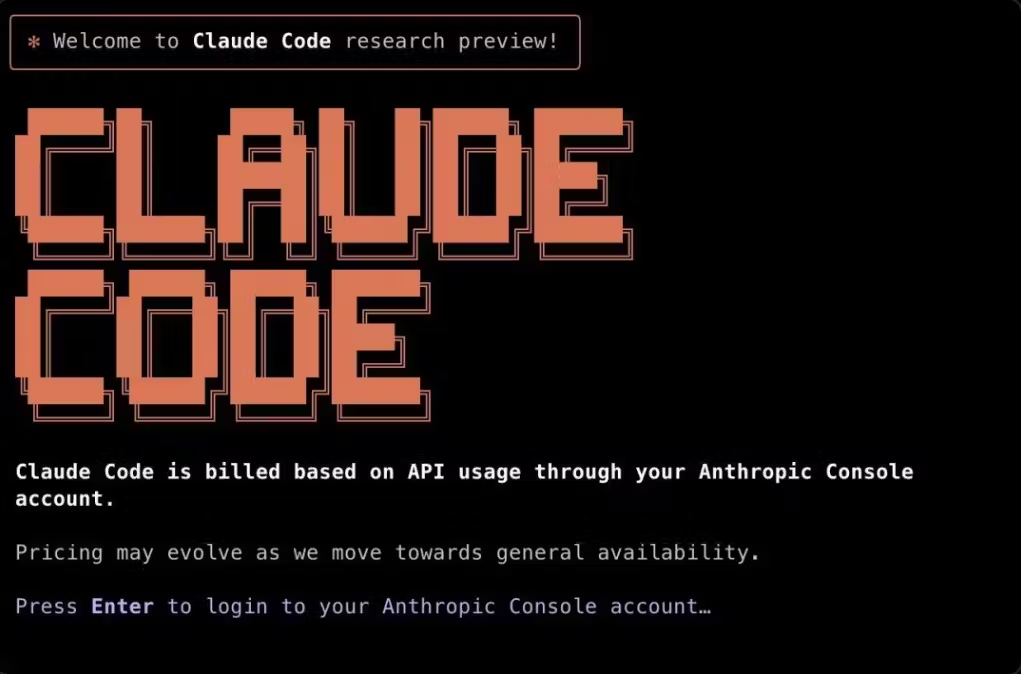
Claude Code is a potent command line assistant for deep, complex coding tasks. It excels at understanding entire codebases and performing multi file refactors. However, its steep learning curve, strict usage caps, and unpredictable costs make it a tool for dedicated power users. It is not a casual, plug in and go solution. Expect to invest significant time configuring it for good results.
Price: Starts at $20/month | Free plan: Yes
PROS AND CONS
PROs
- Understands entire project context.
- Excels at complex, multi-file edits.
- Highly scriptable with CLAUDE.md.
- Supports custom tools and integrations.
- Strong and helpful community ecosystem.
CONs
- Frustratingly strict usage limits.
- Cost can be high and unpredictable.
- Requires a steep learning curve.
In Depth Exploration
Claude Code shines when you move beyond single file edits. Its top skill is codebase comprehension. I pointed it at a legacy project I was unfamiliar with and asked it to “map the user authentication flow”. Within two minutes, it produced a clear, accurate description, referencing five key files. It saved me at least an hour of manual code tracing.
Its other standout use is large scale refactoring. I tasked it with updating a deprecated API endpoint that was used in 12 different component files. It correctly identified all instances, updated the calls with the new syntax, and adjusted the corresponding import statements. The entire operation took about five minutes. It made one minor mistake in a test file, which was an easy fix. For these deep, architectural tasks, its performance is solid.
Setup
Getting started is straightforward if you’re comfortable with the terminal. It’s a single “npm install” command, assuming you have Node.js v18+ installed. The first run prompts you to authenticate through a browser, which is a quick, one time step. No credit card was required to use the initial free API credits, which is a welcome touch.
My first interaction was a reality check. I ran it on a project without any guidance and asked it to add a new feature. The results were clumsy and missed the project’s coding style. The tool only became useful after I created a `CLAUDE.md` file. I outlined the project structure and key commands. This simple setup improved the output quality significantly.

Performance
Performance is a tale of two models: Sonnet and Opus. Sonnet is fast and capable for routine tasks. I fed it a 500-line script with a dozen linting errors, and it fixed them all in about 45 seconds. The premium Opus model is noticeably smarter, completing the same task in 30 seconds with better explanations. The catch? Opus burns through your usage allowance about 5 times faster.
Accuracy is directly tied to your setup efforts. Without a detailed “CLAUDE.md” file, I found the tool made significant errors on complex requests. And after investing into a proper configuration file, this error rate dropped to below 10%. It still requires a line by line review of every change. It’s not a tool you can trust to run unsupervised without risking serious issues.
Integrations
Claude Code offers official integrations for VS Code and JetBrains IDEs, which work well. However, the real story is the community ecosystem. The tool’s unopinionated nature has inspired users to build what I’d call “meta tools” to fill its gaps. For example, the “ccusage” CLI is almost essential for tracking your token consumption and estimated costs, something the native tool lacks.
There are also community plugins for Neovim and Emacs, along with a rich collection of pre made “CLAUDE.md” configurations for different tech stacks. The existence of this ecosystem is a testament to the tool’s power. It also signals that the out of the box experience isn’t complete.
Pricing & Value
The pricing starts at $20/month for the Pro plan. This sounds reasonable, but the value is undercut by strict usage caps. On my first day, I hit my 5-hour rolling limit in about 90 minutes of moderately intensive use. This makes the subscription feel less like an all-access pass and more like a rationed meal plan.
A complex debugging session with the powerful Opus model can easily cost the equivalent of $5-$10 in API credits within an hour. The most frustrating part for premium users is the silent model downgrading. After using a small portion of your allowance on Opus, the tool automatically switches you to the weaker Sonnet model. This policy significantly reduces the value of the higher-priced tiers.
Learning & Support
The learning curve here is steep, but not for the reasons you might think. The commands are simple. The difficulty lies in learning how to manage the AI effectively. Mastering the art of writing a good “CLAUDE.md” file is the real challenge. You have to learn to think like a manager, providing clear, unambiguous instructions. Learning to use it well felt less like learning a new tool and more like learning to manage a new, very talented, but very literal junior developer.
The official documentation is good, but the community is the best support channel. The “awesome-claude-code” GitHub repository is an essential resource, packed with tips and third-party tools.
Extra Notes
One last point: the tool constantly asks for permission before making any change. While safe, this becomes tedious quickly. Most experienced users, myself included, end up using the “dangerously-skip-permissions” flag. It’s a necessary trade off for productivity, but you must be prepared to supervise its every move when doing so.
Main Features
- Full Code Context
- Agentic Workflows
- 200k Token Context
- GitHub Actions
- MCP Tool Linking
More Reviews

Zebracat
Zebracat Review: Jan 2026 Zebracat is a fast, beginner-friendly AI video generator that turns scripts, URLs, or audio into short social-ready videos with minimal effort.

Emergent
Emergent Review: Last updated – Sep 2025 Emergent is a new ambitious agentic vibe coding platform that can turn a plain English prompt into a

GetGenie AI
GetGenie AI is a remarkably capable assistant for those who live inside the WordPress dashboard, bundling an AI writer, SEO, and competitor analysis tool into one package. It’s ideal if you are juggling multiple tools and subscriptions.
FAQ
It excels at deep work: understanding new codebases, performing complex, multi file refactoring, and debugging nuanced logical errors. It’s less suited for simple, quick code completions.
No. It requires a paid subscription or pay as you go API access. New users typically get a small amount of free API credits to start, with no credit card required upfront.
Yes, there is native Windows support. However, users report more stability issues and bugs compared to running it on macOS or Linux (including via WSL on Windows).
Copilot is faster for in line suggestions and boilerplate code. Claude Code is superior for tasks requiring deep reasoning, planning, and whole project context.
Yes. For any serious or complex task, a well written “CLAUDE.md” file is essential. Without it, the tool’s performance is inconsistent and often disappointing.
Very. On the base Pro plan, an hour of intensive work can easily exhaust your 5-hour rolling limit. This is a major point of friction for many users.


